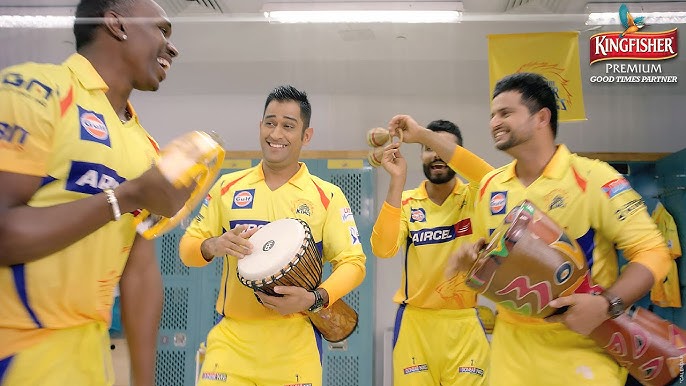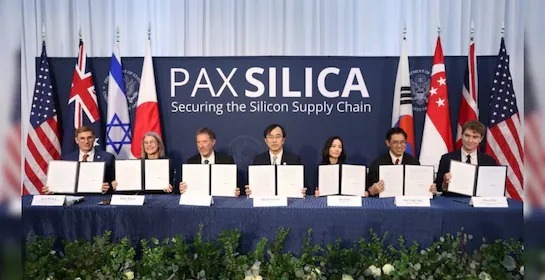Jawahar Lal Gupta, J.@mdashIs a workman whose rainstatement has been stayed during the pendency of the proceedings of the High Court entitled to the payment of wages at the same rate as the other workmen who are actually working in the industry or is he entitled to the payment of wages only at the ''rate last drawn'' by him ? This is the short question that arises in these two Letters Patent Appeals. The learned Single Judge having directed that "the petitioner management shall keep on paying the current wages to the respondent-workman calculated on the basis as if deemihgly he has been in service throughout," the appellant has filed these Appeals and challenged the orders. A few facts as evident from the record of LPA No. 657 of 1993 may be noticed.
2. The Presiding Officer of the Labour Court vide his award dated March 29, 1993 held that the respondent-workman is entitled to reinstatement with continuity of service but without back wages. Aggrieved by this award, the appellant approached this Court through Civil Writ Petition No. 4050 of 1993. It also filed Civil Misc. Application No. 3446 of 1993 for the stay of the operation of the impugned award. The learned Single Judge while considering the matter stayed the reinstatement of the workman but directed the Management to keep on paying" the current wages to the respondent-workman." This order has been challenged as being violative of the provision of Section 17B of the Industrial Disputes Act, 1947. On August 27, 1993, we directed the issue of notice of motion. Learned counsel for the respondent-workman has put in appearance. We have heard learned counsel for the parties at length at the stage of preliminary hearing.
3. It has been submitted by Mr. G.C. Gupta, learned counsel for the appellant that the order passed by the learned Single Judge is contrary to the provision contained in Section 17B of the Act. On the other hand, Mr. Vikas Singh, learned counsel for the respondent-workman, has raised a two-fold contention. Firstly, it has been submitted that no Letters Patent Appeal is competent against an inter-locutory order like the one passed in the present case by the learned Single Judge. Secondly, the learned counsel has contended that the workman is entitled to the same wages as are being paid to the other workmen. He has relied upon the decision of a Division Bench of this Court in P.G.I. v. Presiding Officer etc. 11990 (1) R.S.J. 308.
4. In order to answer the question posed at the outset, it is apt to notice the provision of Section 17B of the Act. It reads as under- "17-B. Payment of full wages to workman pending proceedings in higher courts:-
Where is any case a Labour Court, Tribunal or National Tribunal by its award directs reinstatement of any workman and the employer prefers any proceedings against such award in a High Court or the Supreme Court, the employer shall be liable to pay such workman, during the period of pendency of such proceedings in the High Court or the Supreme Court, full wages last drawn by him, inclusive of any maintenance allowance admissible to him under any rule if the workman had not been employed in any establishment during such period and an affidavit by such workman had been filed to that effect in such court.
Provided that where it is proved to the satisfaction of the High Court or the Supreme Court that such workman had been employed and had been receiving adequate remuneration during any such period or part thereof, the Court shall order that no wages shall be payable under this section for such period or part, as the case may be."
5. This provision was inserted by Act No. 46 of 1982. It was enforced with effect from August 21, 1984. The essential ingredients of this provision are:-
i) A Labour Court, Tribunal or National Tribunal should have directed reinstatement of the workman.
ii) Employer should have preferred proceedings against this award in a High Court or the Supreme Court;
iii) The workman should not have been gainfully employed in any establishment during the pendency of the proceedings and should have filed an affidavit to that effect in Court before which the proceedings are pending;
6. If the above ingredients are satisfied, the employer is liable "to pay such workman, during the period of pendency of such proceedings" in the said Court "full wages last drawn by him inclusive of any maintenance allowance admissible to him under any rule....." The crucial words are- ''full wages last drawn by him''. In our view, the provision implies that if the workman is not gainfully employed in any establishment, he is entitled to the payment of wages at the same rate at which he was being paid immediately before the termination of his services. It appears that the legislature while introducing Section 17B intended that a workman, who remains unemployed in spite of an award having been passed by the competent Court or Tribunal, should be paid at least the wages at the rate last drawn by him so that he may be able to subsist. If the workman is reinstated and allowed to work he would of course get wages at the same rate at which the other workmen are being paid. However, if his reinstatement is stayed and he remains unemployed then the wages have to be paid to him at the same rate at which he was being paid immediately before the termination of his services. This, in our view, is the plain meaning of the provision contained in Section 17B.
7. Mr. Vikas Singh, learned counsel for respondent workman, has, however, pointed out that a Division Bench of this Court in P.G. I. case (supra) has held as under:-
"2. The workman is being paid the wages which he was being paid in the year 1979. Meanwhile the wages of the persons similarly situated have been increased in view of the Pay Commission reports. That being so, the workman will now be entitled u/s 17B of the Act, to the same wages which the other persons similarly situated are getting."
8. In this case the reinstatement of the workman had been stayed subject to the provision of Section 17B of the Act. The above direction was given by the Bench while clarifying an earlier order. It may be that their Lordships intended that the wages be paid to the workman at the same rate at which these were being paid to the "other persons similarly situated, "viz. those whose reinstatement had been stayed. If that be so, this decision poses no problem. However, if their Lordships intended that the wages be paid to the workman at the same rate at which the other workmen who were actually working were being paid, then with respect we feel that the view is contrary to the plain language of Section 17B. In such a situation, the case should have been normally referred to a larger bench. However, it does not appear to be necessary to do so as the learned counsel for respondent-workman has very fairly pointed out that the view of the learned Division Bench was challenged in Civil Appeal No. 786 of 1991 and their Lordships of the Supreme Court was pleased to dispose of the appeal vide their order dated February 18,1991 with the following observations:-
"Special Leave granted. Counsel heard. We are of the view that no interference with the judgment of the High Court is called for except to clarify that the views expressed by the High Court on the construction of Section 17B of the Industrial Disputes Act will not be regarded as conclusive in the matter and that question will be open before the High Court and the parties will be at liberty to make their submissions regarding the correct interpretation of the said Section at the final hearing of the Letters Patent Appeal. The High Court to dispose of the Letters Patent Appeal as early as possible. The appeal is disposed of accordingly. No costs."
9. In view of the above observations, it appears that the question was left open and it is not necessary to refer the matter to a larger bench. We are of the considered view that the workman who has not been reinstated is entitled to the payment of wages only at the rate last drawn by him and not at the same rate at which the wages are being paid to the workmen who are actually working.
10. There is a clear rationale for this provision. A person who is actually working and performing his duties is differently placed from a person who is being paid without performing any duty. The two are not similarly situated. Consequently, the two persons can be treated differently. It is not difficult to visualise that a workman may have been dismissed after serious charges had. been proved against him. The management may not be inclined to reinstate him in spite of the award having been passed by the competent Court or Tribunal. If it challenges the order in the High Court or in the Supreme Court, the workman may not be reinstated during the pendency of the proceedings. In such a situation the Legislature has provided that he must be paid at least the wages which he was drawing immediately before his dismissal from service. This would enable the workman to subsist. It is fair and equitable. The workman is paid to enable him to subsist without having to work and the Management is able to avoid reinstatement till the decision of the case.
11. This brings us to the objection raised by the learned counsel for the workman that the appeal is not competent. He relied heavily on the observations of a Full Bench of this Court in
"3. It is manifest that the order under appeal is merely a stay order on terms and conditions specified therein and involves no determination of any right or liability which may ultimately affect the merits of the controversy. That being so, the matter is obviously covered by
12. In this case a decree passed by the learned Senior Subordinate Judge, Ludhiana had been challenged by filing a Regular First Appeal. A Misc. application was moved under Order 41 Rule 5 of the CPC for the stay of the execution of the decree. The learned Single Judge by his order under appeal had "acceded to the prayer for stay on the condition that the respondents should furnish adequate security regarding the decretal amount to the satisfaction of the Executing Court within a period of one month." It was this order which was challenged by filing a Letters Patent Appeal. Their Lordships of the Full Bench held that the order did not involve "determination of any right or liability which may ultimately affect the merits of the controversy."
13. In the present case, the position is different. The learned Single Judge has not passed a mere interlocutory order. In fact the right of the parties have been determined. A positive direction for payment of wages at ''the current rate'' has been given. Even if the writ petition is ultimately allowed and the award of the Labour Court is set aside, the appellant shall not be able to recover the money paid to the workman in pursuance to the order of the learned Judge. A liability not warranted by the provision of Section 17B has been created. This order, in the words of Hon''ble the Supreme Court in
14. Accordingly, we allow the Letters Patent Appeals Nos. 657 and 658 of 1993. We hold that the workman in these two appeals shall be entitled to the payment of wages at the rates at which they were being paid immediately prior to the termination of their services. In the circumstances of the case, we make no order as to costs.

